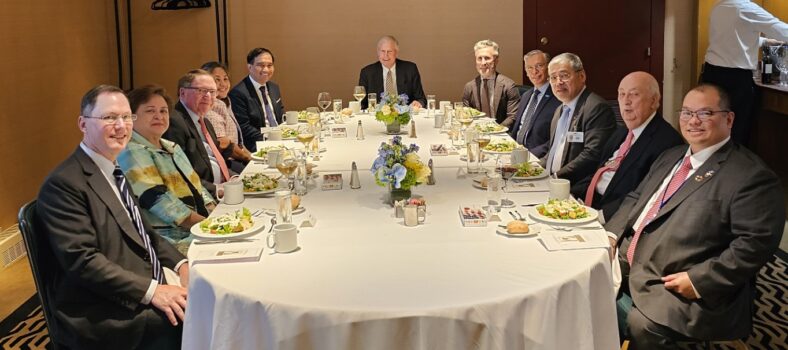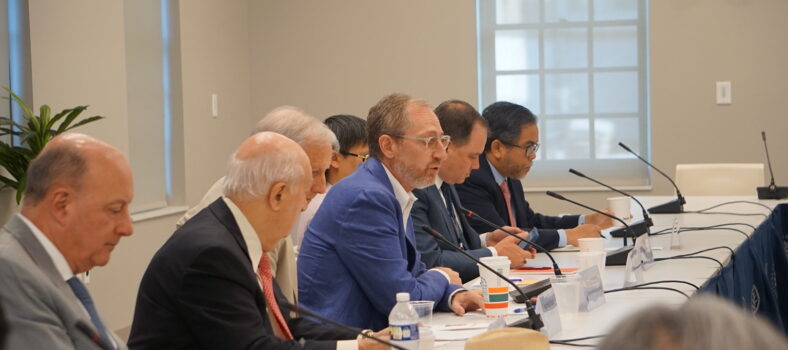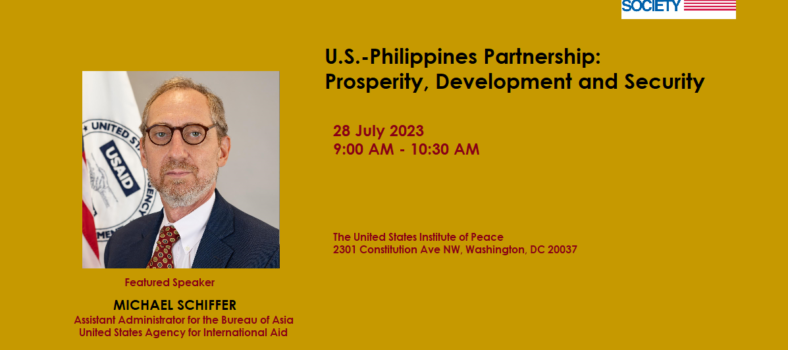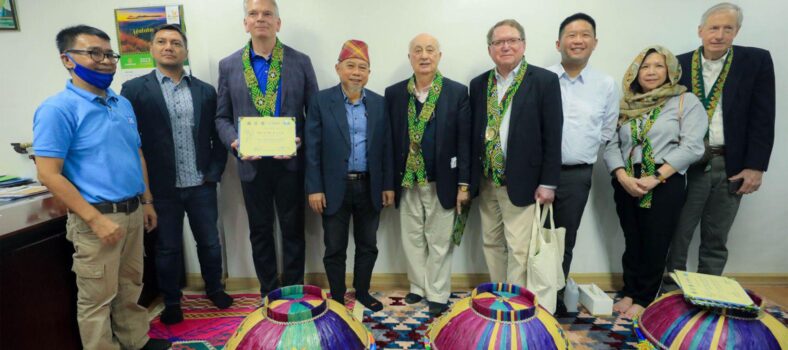Overcoming Challenges to Peace and Development in Bangsamoro Mindanao
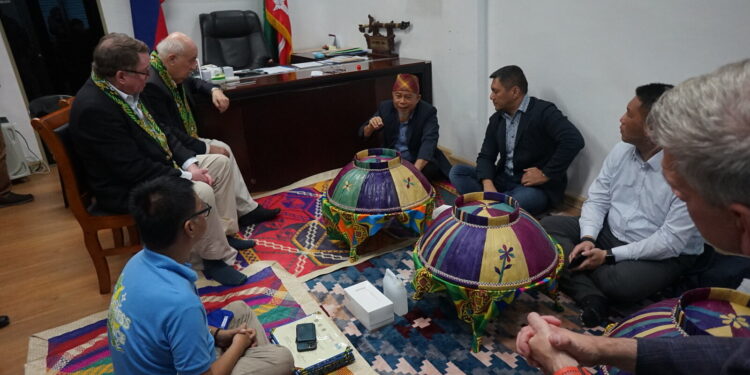
Panelists Earl Gast of URC, Brian Harding of USIP and Aubrey Bahala of IAG were recently in Mindanao and shared their views on progress in the Bangsamoro Autonomous Region in Muslim Mindanao (BARMM) during a March 15 online forum. They observed dramatic change since the historic 2019 ratification of the Bangsamoro Organic Law, especially a reduction in violence involving major armed groups. However progress remains slow and uneven in the implementation of the dual track to peace: the political track or legislative and institution building, and the normalization track or disarmament of MILF forces and the transformation of guerrilla camps into productive communities. A peace dividend, particularly the delivery of basic services, security, socioeconomic and community health aspects across the board, remains elusive owing to challenges posed by the COVID 19 pandemic, clan wars or “rido”, and foreign-connected ISIS breakaway factions.
On January 21, 2023, marking the fourth founding year of BARMM, Interim Chief Minister Ahod Ebrahim was cautiously optimistic stating that “peace was never easy” and acknowledging that “the Bangsamoro Government still has many governance and development challenges to overcome.”
Institute for Autonomy and Governance’s Training Expert Aubrey Bahala described a roadmap of the political transition that included establishing and strengthening political institutions, setting up regional laws such as the electoral code, the Administrative Code, and consultations on local government code. On March 8, 2023 the interim Bangsamoro Parliament passed the Bangsamoro Electoral Code defining the structural, functional, and procedural principles on matters pertaining to parliamentary elections in the region and ensuring fair and inclusive elections on May 2025. The 80-member Parliament shall be composed of 50% Party Representatives, not more than 40% District Representatives, and at least 10% Reserved Seats for non-Moro indigenous peoples and settler communities, women, youth, traditional leaders, and the Ulama.
URC President Earl Gast said that he witnessed steady improvement in the BARMM region’s access to health services and education but not at pace with the rest of the Philippines, citing a poverty rate in the BARMM that is double of national rate, and infant mortality at 37 per 1000, the highest in the country. These concerns, the high incidence of tuberculosis in the Philippines and Universal Healthcare were high on the priority agenda of BARMM Minister of Health Dr. Rizaldy Piang at a February 1 US-Philippines Society courtesy call in Cotabato City.
U.S. Institute of Peace Senior Expert Brian Harding offered insights into the political dynamics that paved the way for the ratification of the Bangsamoro Organic Law and the creation of a self governing political entity, the BARMM. The Duterte Administration pushed forward the implementation of the Comprehensive Agreement on the Bangsamoro (CAB) amidst many challenges including economic loss caused by the COVID-19 pandemic and extending the parliamentary elections by three years to May 2025. The 2022 election of Vice-president Sara Duterte, former mayor of Davao City who has assumed an increasingly influential leadership role, gave some assurance to continue the momentum and provided a stabilizing factor during the transition.
Harding would welcome an accelerated process of decommissioning of MILF combatants and firearms. Reports counted 15,300 MILF combatants are still to be decommissioned. Of the total 40,000 MILF combatants for decommissioning, only 4,625 firearms are decommissioned. A recent ambush of fellow governor Lanao Del Sur’s Gov. Mamintal Adiong Jr., led four BARMM governors to appeal for full decommissioning and refocus on other aspects of the agreement including the disbandment of private armed groups.
For many years, the Philippine military forces have invested time and resources to quell domestic threats posed by instability in conflict areas in the region. With sustainable peace, “they could be more focused on external threats and essentially be a better partner for the United States,” stated Brian Harding referring to the US-Philippines Defense Treaty.
| POLICY RECOMMENDATIONS |
|
Earl Gast related URC’s best practices for effectively implementing development programs in partnership with USAID and these include:
|
Bahala stressed the importance of civil society. Its vibrant presence in Bangsamoro can be fully harnessed by seeking their inputs through accessible platforms including formation of political parties representing the youth and the indigenous peoples. She noted that Bangsamoro youth comprise 50 percent of the population and their input in the governance and lawmaking process are essential to sustainable peace. Passing the Indigenous Peoples Code will address ongoing disputes, harassment, and land grabbing of ancestral domain land.
Bahala described how international donors’ projects and initiatives in the region are helpful in ensuring strengthening of the bureaucracy and monitoring a timely normalization process. All panelists recommend increased support for the peace process by the international community, including the United States.
US-Philippines Society Director Henry B. Howard provided a historical context of the struggles and conflict between the Philippine government and Muslim Mindanao and the evolution of the peace accord since the 1976 Tripoli Agreement was signed between the Philippine government and the Nur Misuari-led Moro National Liberation Front (MNLF). He concluded, “this is the best trajectory for peace and reconciliation and development that I’ve ever seen in Mindanao.”
The Philippine Roundtable was organized by the US-Philippines Society in collaboration with Stimson Center’s Southeast Asia Forum Chair Bill Wise who served as moderator of the program.
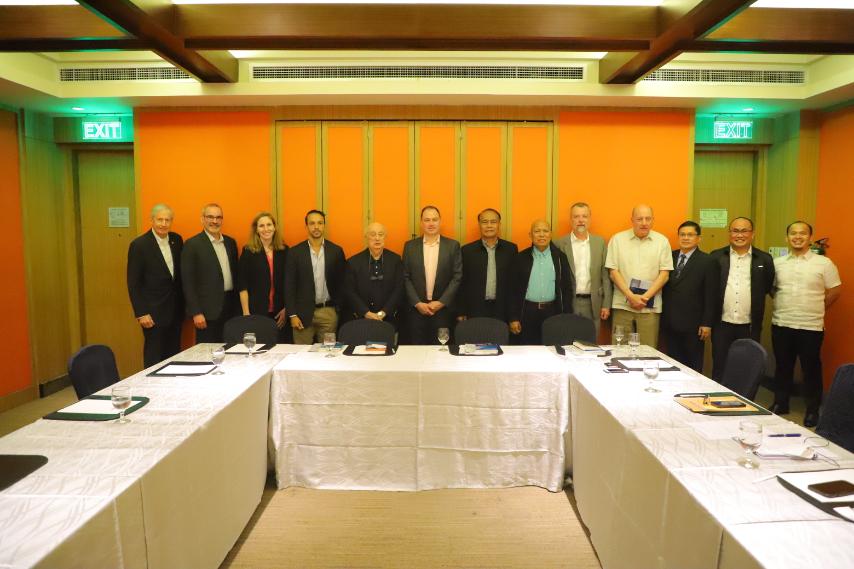
Members of US-Philippines Society, Amb John F. Maisto, Hank Hendrickson and Henry B. Howard, along with U.S. Institute of Peace experts led by Brian Harding and Dr. Andrew Wilder, met leaders of the Office of the Presidential Adviser on Peace, Reconciliation and Unity, Manila, 2 February 2023.
CLICK IMAGE BELOW TO VIEW THE VIDEO RECORDING
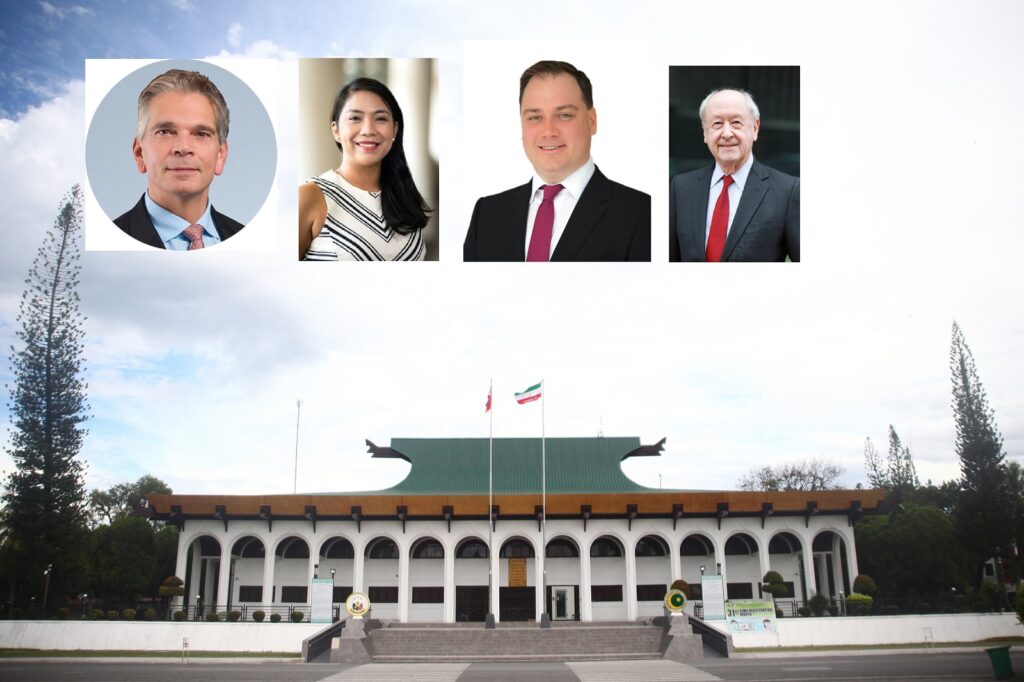
Panelists: (l-r) Earl Gast, Aubrey Bahala, Brian Harding and moderator Bill Wise. Lower photo: Bangsamoro Government Center, Cotabato City. Photo by Bangsamoro Information Office

